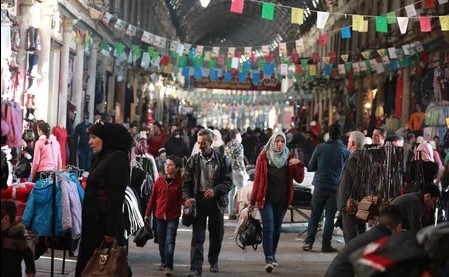Syria’s Economic Struggles and Rebuilding Efforts
Syria’s economy has been devastated by more than a decade of civil war. What was once a thriving country with a growing economy has turned into a nation facing a multitude of challenges, making the task of rebuilding even more difficult. The civil war, which began in 2011, led to the destruction of vital infrastructure, a loss of economic resources, and left millions of Syrians in a state of poverty. The economy has been unable to recover due to the ongoing conflict and the harsh effects of international sanctions. This has left the Syrian people struggling to meet their basic needs, while the government works to rebuild and restore some sense of normalcy.
One of the most significant impacts of the war on Syria’s economy has been the loss of oil exports, which were a key source of income for the country. Oil reserves in Syria are among the largest in the region, but the civil war saw the country lose control of most of its oil fields. These resources, which once generated billions of dollars in revenue, are now out of reach, making it even harder for Syria to rebuild its economy.
Along with this, the cost of living in the country has skyrocketed due to inflation, leading to a situation where Syrians must carry large amounts of cash just to pay for basic necessities such as food, medicine, and transportation. Rebuilding Syria’s economy will require reclaiming vital resources and tackling the inflation that has made daily life so difficult for its citizens.
Economic Struggles: Inflation and Poverty
Inflation has been one of the key factors in Syria’s economic downfall. The country’s currency has lost much of its value, making everyday goods unaffordable for many. The price of food and essential items has risen sharply, and salaries have not kept up with these increases. As a result, many Syrians find themselves in a constant battle to make ends meet.
The poverty situation in Syria has become dire. Experts estimate that nearly one-third of the population suffers from extreme poverty, with many people unable to access even the most basic services, such as healthcare and education. In some regions, families rely on humanitarian aid just to survive. The war has displaced millions of people, both internally and abroad, leaving many families without homes or means of livelihood. As the war continues to take a toll on the population, rebuilding the economy has become an urgent priority for Syria’s leaders.
Challenges in Rebuilding: Sanctions and Oil Sector Control
Rebuilding Syria’s economy is a challenging task, with one of the biggest obstacles being the international sanctions imposed by Western powers. These sanctions, placed due to the government’s actions during the civil war, have made it difficult for Syria to access foreign investments and aid. They have also restricted Syria’s ability to trade globally, further hindering the economy’s recovery.
In addition to the sanctions, the government faces the challenge of regaining control over the country’s oil sector. Syria was once a major oil producer in the region, but much of its oil fields are now controlled by rival factions. To revive the economy, Syria needs to reclaim these areas and rebuild its oil infrastructure, which is vital for its economic recovery.
To overcome these challenges, Syria requires foreign investments and support from countries willing to assist in the rebuilding process. The government has been reaching out to international partners, but sanctions complicate this effort. Moreover, encouraging the return of Syrians who fled during the civil war could provide valuable skills and experience to help with reconstruction, offering hope for the country’s recovery.

